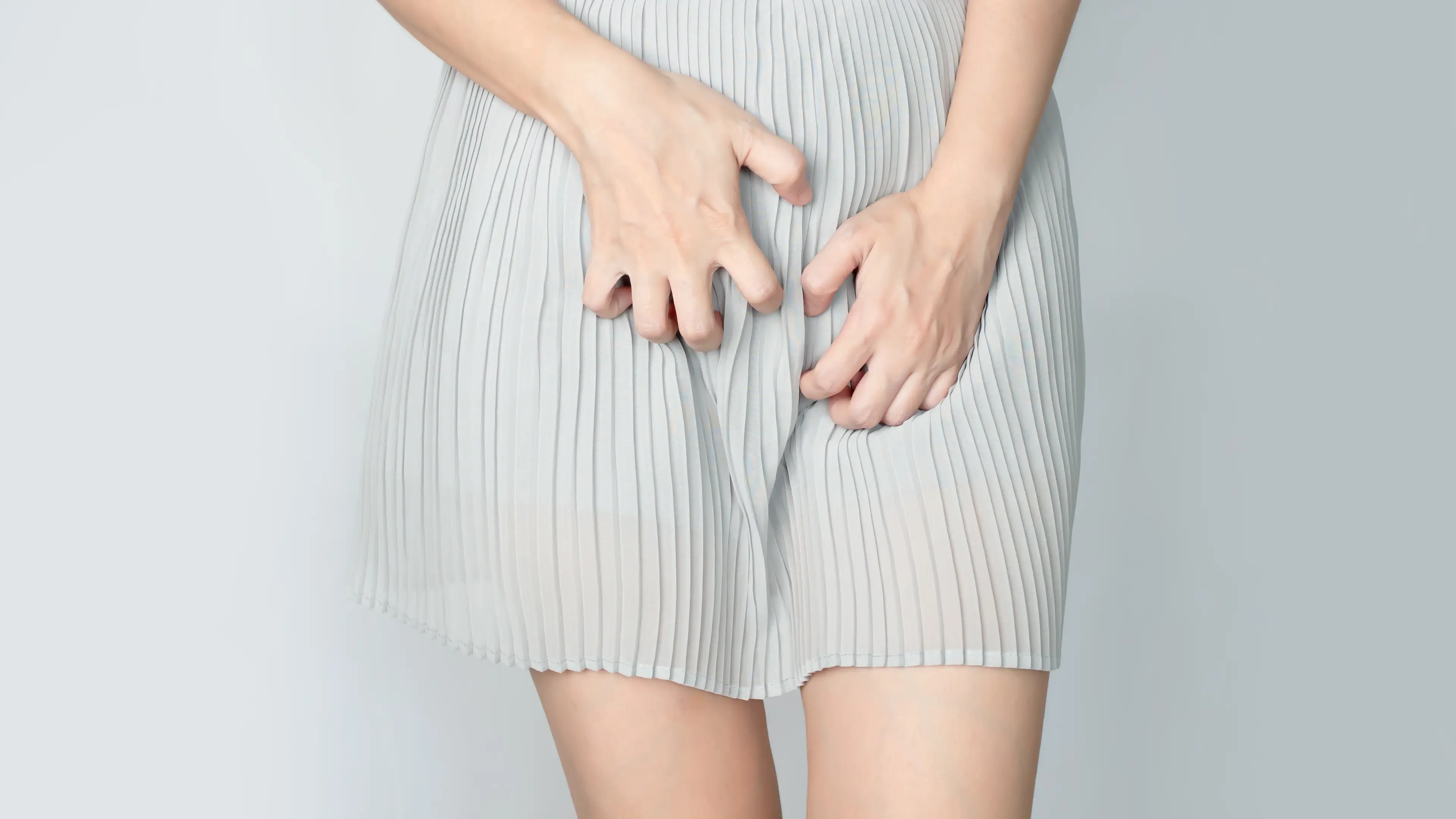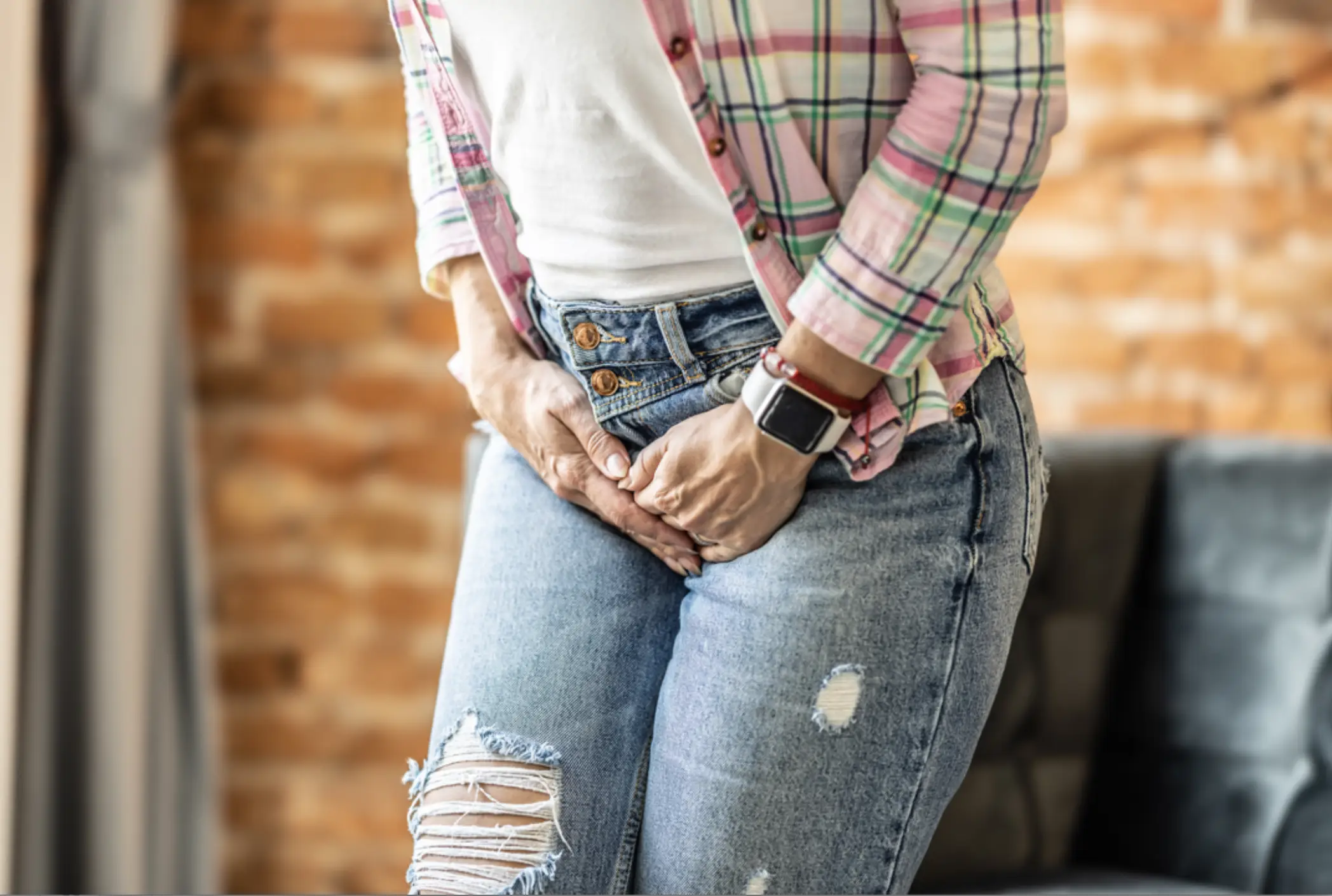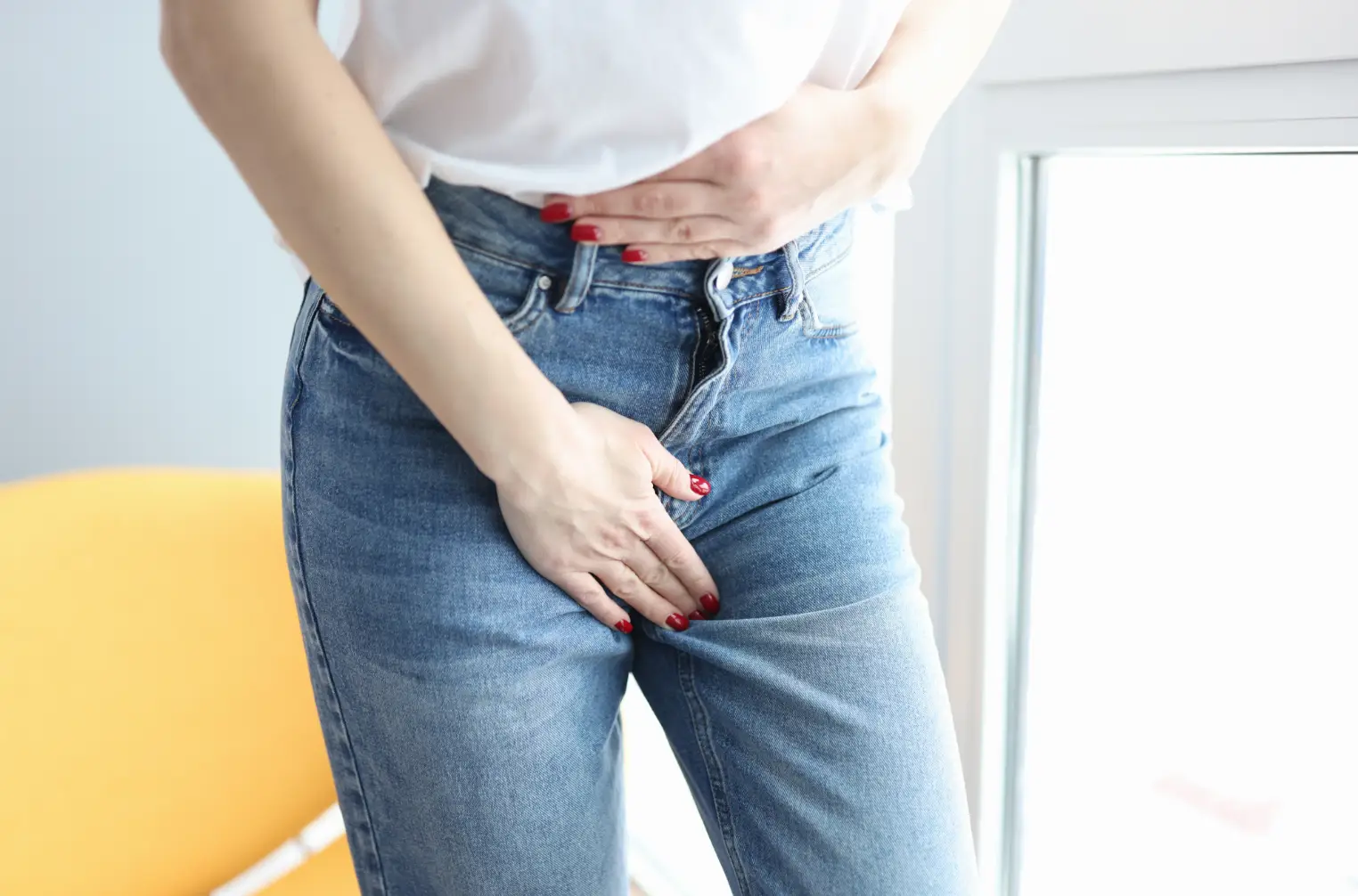
A doctor has issued a message for anyone who gets 'itchy down there'.
Now, while vulval itching is very common, it can often be a distressing symptom that can affect women and people with vulvas of all ages.
In many cases, it’s caused by minor, treatable issues such as thrush, bacterial vaginosis, irritants, skin irritation and hormonal changes. However, persistent or worsening vulval itching should never be ignored, as it can sometimes signal more serious conditions like lichen sclerosus or, on rare occasions, vulval cancer.

What is lichen sclerosus?
One important cause of long-term vulval itching is lichen sclerosus, a chronic inflammatory skin condition.
Advert
Lichen sclerosus most commonly affects the vulva, causing the skin to become thin, fragile and prone to scarring.
While it can affect anyone, it is reportedly most common in prepubescent girls and postmenopausal women, explains Dr Nikki, The Female Health Doctor.
Symptoms of lichen sclerosus which she mentions include:
- Severe or persistent vulval itching (often worse at night)
- Burning, soreness, or pain during sex
- White, thin, or shiny patches of skin
- Skin cracks or bleeding, pain with urination
- Wrinkled or “cigarette paper” skin
- Changes in vulval shape, such as the shrinking of the labia
If left untreated, lichen sclerosus can lead to permanent scarring, narrowing of the vaginal opening which can cause pain with sex or urination, and increased cancer risk.
According to Dr Nikki, about four to five per cent of women with untreated lichen sclerosus may develop vulval cancer over time.

Vulval cancer
London Gynaecology states: "Persistent itching ‘down below’ could be a sign of thrush, but without the accompanying symptoms could be a pre-cancerous sign of vulval cancers. This may also present as tenderness of the vulva, pain or burning sensation."
Meanwhile, the CDC adds: "Itching, burning, pain, or tenderness of the vulva, and changes in vulva colour or skin, such as a rash, sores, or warts, are found only in vulvar cancer."
While vulval cancer is rare, it is a serious condition that should be considered, especially if itching doesn’t improve with standard treatments.
Dr Nikki outlines that risk cancers include being over the age of 65 (though it can occur at any age), untreated or poorly managed lichen sclerosus, a persistent HPV infection and smoking.
As per the health expert, warning signs include:
- Vulval itching that doesn’t improve
- A lump, ulcer, or thickened area that persists
- Changes in skin colour or texture
- Pain, burning, or soreness
- Bleeding or unusual discharge unrelated to periods
The importance of vulval health
Dr Nikki outlines that these simple changes can help soothe and protect the delicate vulval skin:
- Avoid perfumed wipes, bubble baths, and scented soaps
- Choose cotton underwear and loose-fitting clothes (light colours are best)
- Wash and moisturise with plain emollients if skin is dry
- Check your vulva regularly so you can spot changes early
You can find out more about vulval cancer on the official NHS website here.
If you’ve been affected by any of these issues and want to speak to someone in confidence, contact Macmillan’s Cancer Support Line on 0808 808 00 00, 8am–8pm seven days a week.
Topics: Health, Women's Health, Cancer, Life, Advice, Explained